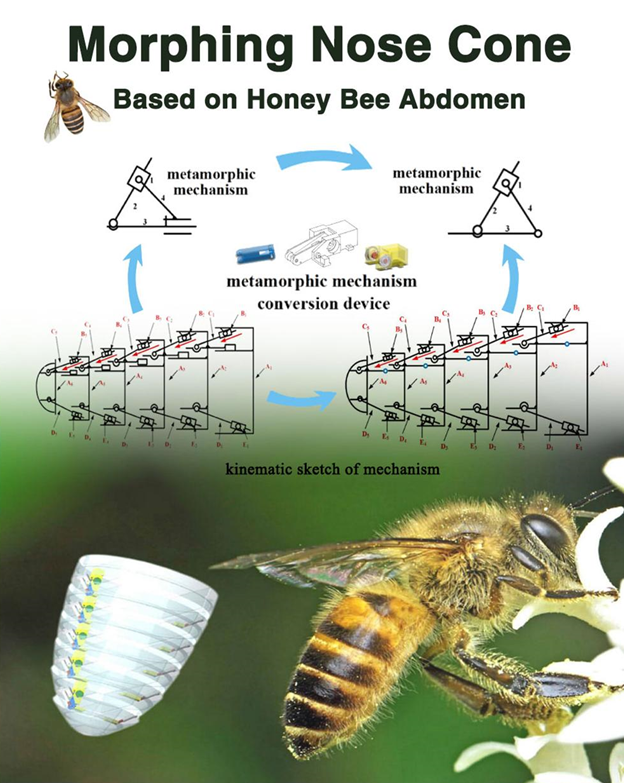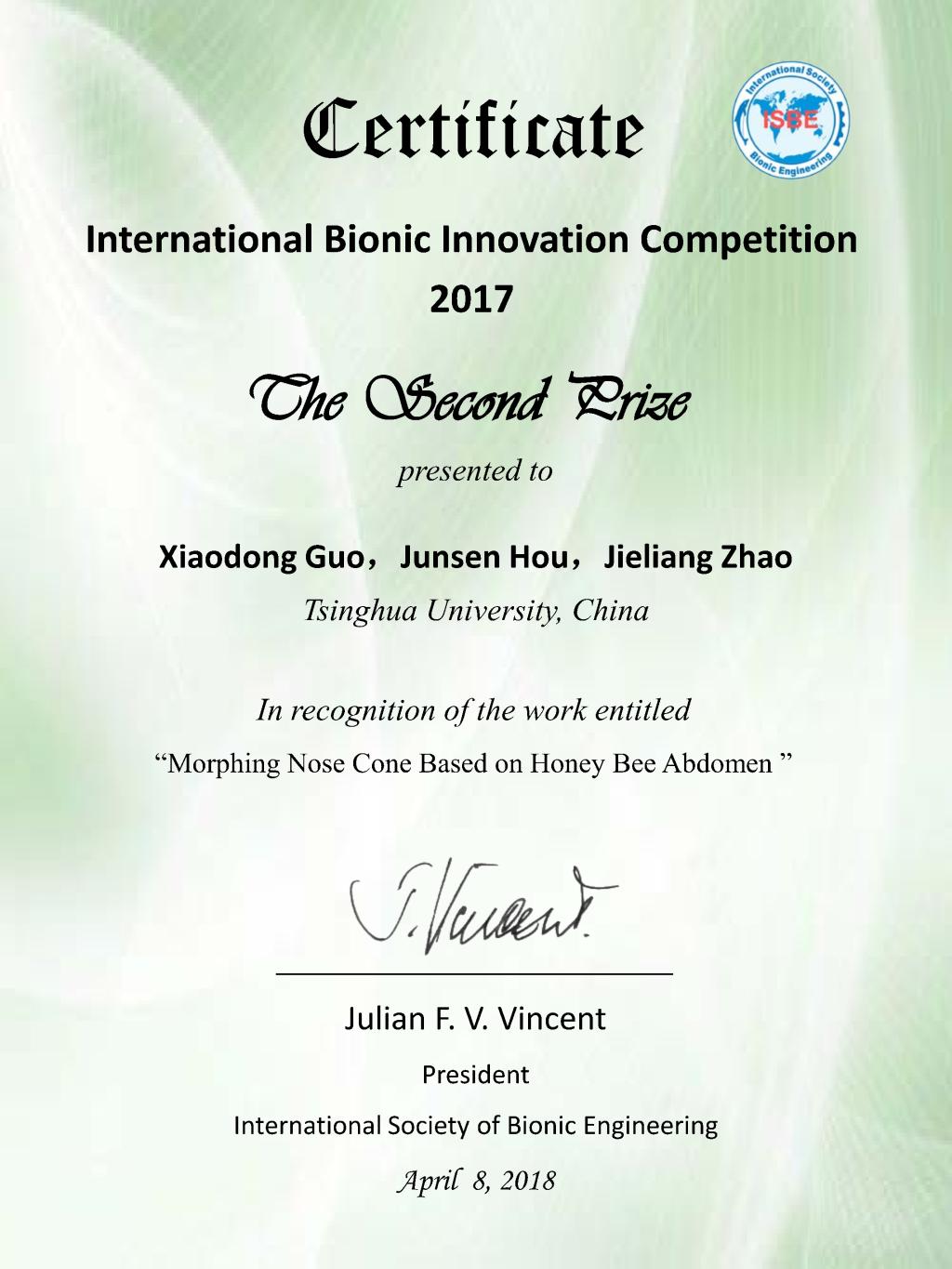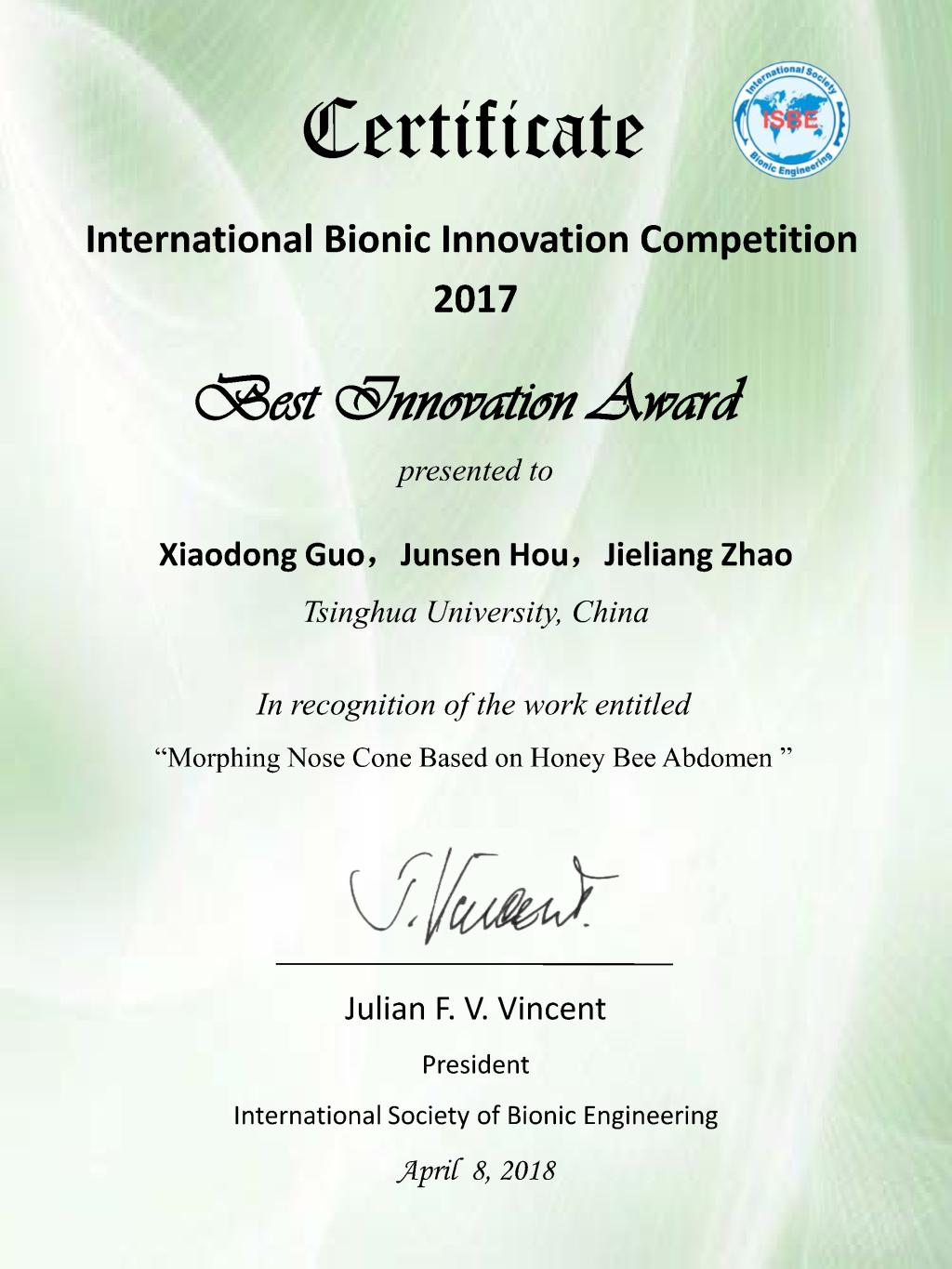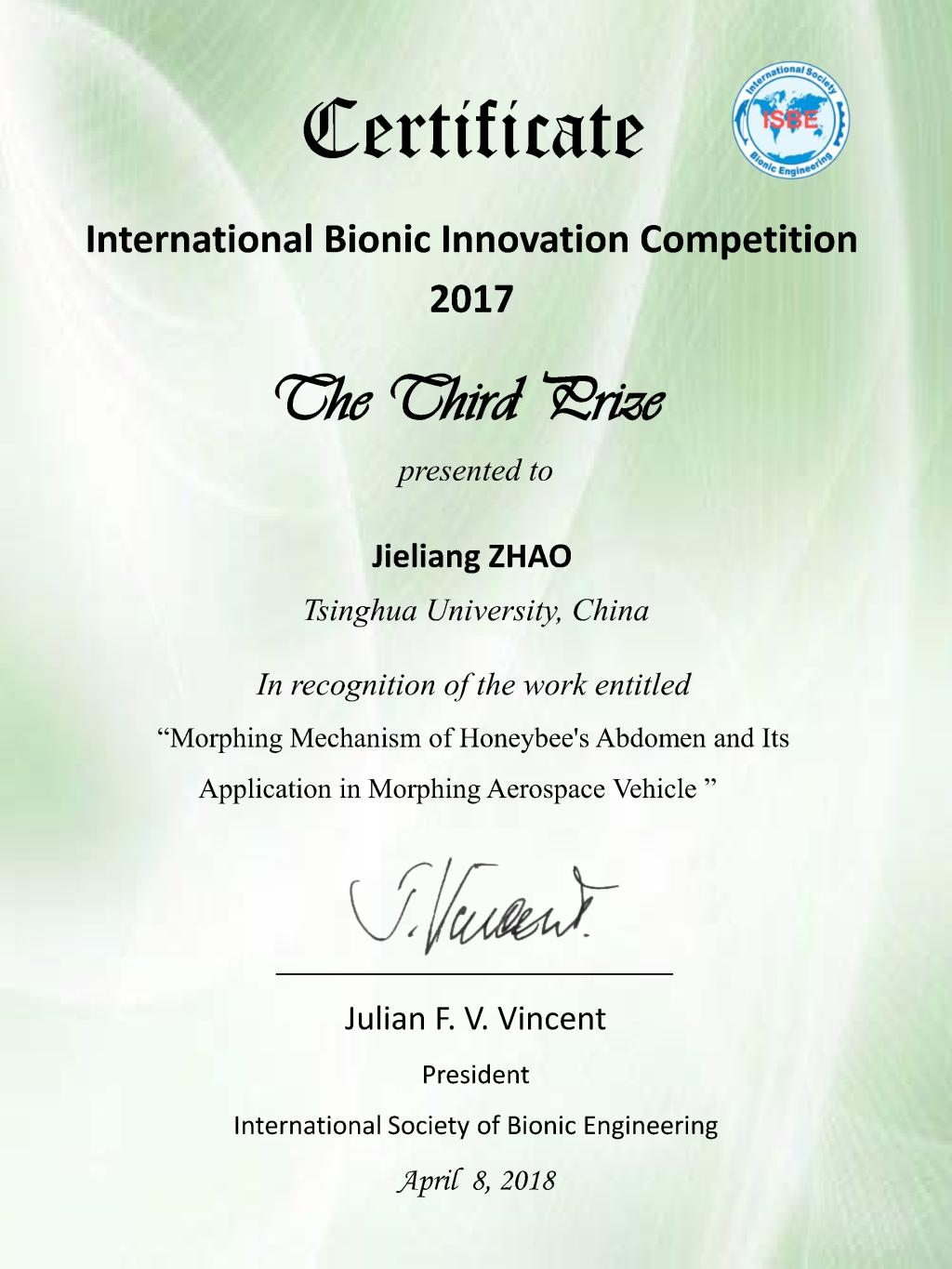The winners of the first International Bionic Innovation Competition hosted by the International Society of Bionic Engineering (ISBE) were announced recently. Two Ph. D students, Xiaodong Guo and Jieliang Zhao, from Professor Shaoze Yan’s group of the State Key Laboratory of Tribology, Tsinghua University, won the prize in the Bionic Innovation Competition. The work of the Morphing Nose Cone Based on Honey Bee Abdomen, submitted by Xiaodong Guo, Junsen Hou (Undergraduate student in Department of Mechanical Engineering at Tsinghua University) and Jieliang Zhao, won the second prize and the best innovation award, and the work of the Morphing Mechanism of Honeybee's Abdomen and Its Application in Morphing Aerospace Vehicle, submitted by Jieliang Zhao, won the third prize. Two works are both the morphing nose conesin order to improve the aerodynamic characteristics of the aerospace vehicle during the stages of high-speed ascend and reentry into the atmosphere, which are inspired by the deformation mechanism of honeybee abdomen.
The first ISBE Bionic Innovation Competition sponsored by Jilin University was started in July 2017 and has attracted the worldwide consideration of the ISBE members. The organizing committee had received more than 130 works from 12 countries and regions including UK, USA, Canada, Netherlands, Switzerland, Romania, Portugal, South Africa, Japan, India, China and Hong Kong.
The evaluation committee was composed of 9 specialists from around the world and carried out the evaluation on the principles of equality, openness and fairness. After initial assessment and two rounds of careful evaluation, 33 works have been selected for the Grand Prizes including 3 Premier Prizes, 10 Secondary Prizes, and 20 Tertiary Prizes. In the Meantime, 15 Special Awards including 5 Best Design Awards, 5 Best Creativity Awards, and 5 Best Popularity Awards have been determined based on the polling of online votes.






